Find Help
More Items From Ergsy search
-
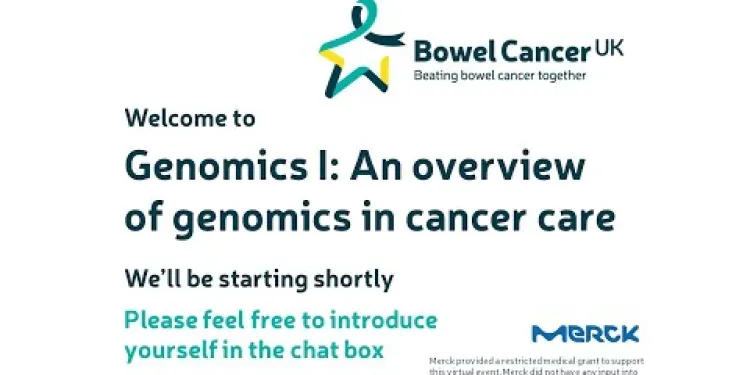
Genomics I: An overview of genomics in cancer care
Relevance: 100%
-

What is Cancer?
Relevance: 42%
-

Vaginal Cancer
Relevance: 40%
-

Endometrial Cancer
Relevance: 39%
-

Vulval Cancer
Relevance: 38%
-

Has aspirin been proven to cure colorectal cancer?
Relevance: 38%
-

Endometrial Cancer
Relevance: 37%
-

Endometrial Cancer
Relevance: 36%
-

Is testicular cancer treatable?
Relevance: 36%
-

Can children with cancer receive Paillon treatment?
Relevance: 35%
-

What support is available for individuals diagnosed with bowel cancer?
Relevance: 35%
-

Living with prostate cancer
Relevance: 35%
-

What types of treatments are available for testicular cancer?
Relevance: 35%
-

Bowel Cancer
Relevance: 35%
-

Ovarian Cancer
Relevance: 35%
-

What is testicular cancer?
Relevance: 34%
-

What is colorectal cancer?
Relevance: 34%
-
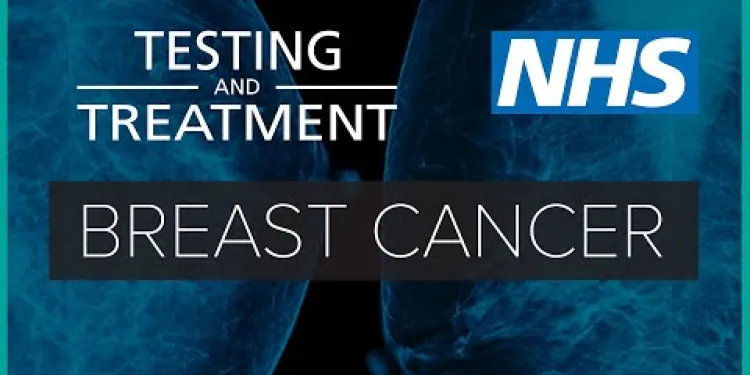
Breast cancer: testing and treatment | NHS
Relevance: 34%
-

Breakthrough in Cancer Treatment Offers Hope for Prostate Cancer Patients
Relevance: 34%
-

What is the difference between colon cancer and rectal cancer?
Relevance: 34%
-

What is Pancreatic Cancer?
Relevance: 34%
-

Will insurance cover the cost of home colorectal cancer tests?
Relevance: 34%
-

Head and Neck Cancer Diagnosis
Relevance: 34%
-
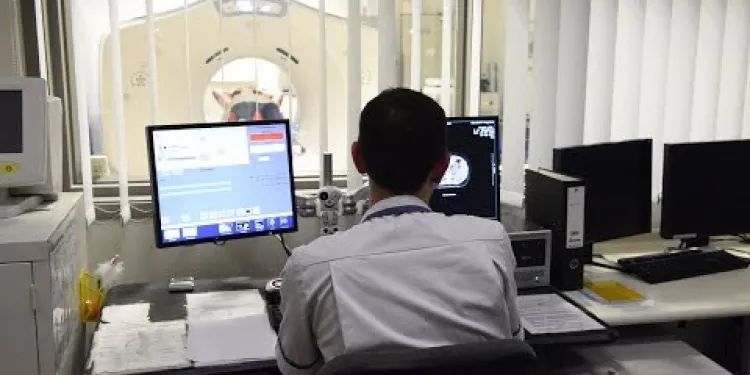
Having radiotherapy for breast cancer - 3 Videos
Relevance: 33%
-

What is testicular cancer?
Relevance: 33%
-

Can bowel cancer spread to other parts of the body?
Relevance: 33%
-

How to do the FIT bowel cancer screening test | Cancer Research UK
Relevance: 33%
-

What is Bowel Cancer?
Relevance: 33%
-

Treating prostate cancer
Relevance: 33%
-

Mouth Cancer Awareness
Relevance: 33%
-

What is Prostate Cancer?
Relevance: 33%
-

Dementia Care at Colten Care
Relevance: 33%
-

What is testicular cancer?
Relevance: 33%
-

Skin cancer education
Relevance: 33%
-

Mouth Cancer Infomercial
Relevance: 33%
-

How common is bowel cancer?
Relevance: 33%
-
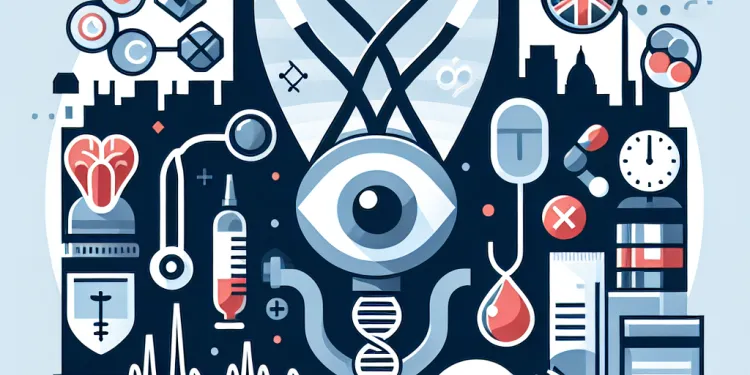
What role do tumor markers play in testicular cancer?
Relevance: 32%
-

What is Radiotherapy, and its use in treatment for cancers?
Relevance: 32%
-

What treatment options are available for bowel cancer?
Relevance: 32%
-
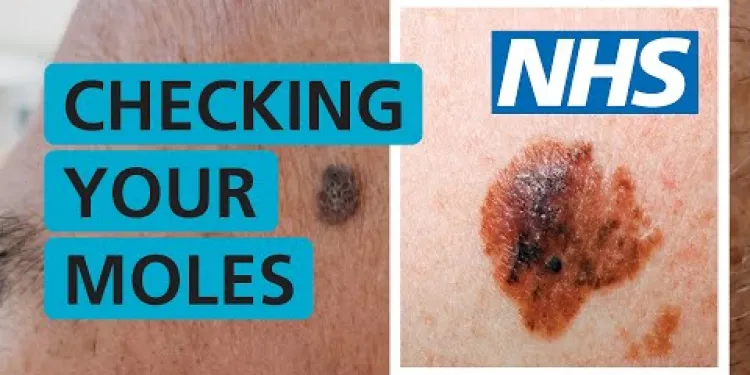
Skin Cancer - How do I check if my mole is skin cancer? | NHS
Relevance: 32%
What are Genomics, in cancer treatment?
Genomics in cancer refers to the study of the complete set of genes (the genome) and their interactions within cancer cells to understand the underlying genetic mechanisms driving cancer development, progression, and response to treatment. Genomics plays a crucial role in cancer research, diagnosis, prognosis, and personalized treatment strategies. Here are some key aspects of genomics in cancer:
- Genetic Mutations: Cancer is a genetic disease characterized by alterations (mutations) in the DNA of cells, which can lead to uncontrolled cell growth and tumor formation. Genomic studies help identify specific genetic mutations associated with different types of cancer, allowing researchers to better understand the molecular basis of the disease.
- Tumor Genomics: Tumor genomics involves analyzing the genetic makeup of cancer cells to identify mutations, gene expression patterns, and other genomic alterations that drive tumor growth and progression. This information can help classify tumors into subtypes, predict disease aggressiveness, and identify potential therapeutic targets.
- Precision Medicine: Genomic profiling of tumors enables the development of targeted therapies that specifically target the molecular pathways driving cancer growth. By matching patients with targeted therapies based on the genomic profile of their tumors, precision medicine aims to improve treatment outcomes and minimize side effects.
- Biomarker Discovery: Genomic studies identify biomarkers—genetic or molecular characteristics associated with cancer—that can be used for early detection, prognosis, and monitoring of treatment response. Biomarkers may include specific mutations, gene expression patterns, or other genomic alterations that provide valuable information about the biology of the tumor.
- Cancer Risk Assessment: Genomic testing can assess an individual's inherited risk of developing certain types of cancer by identifying germline mutations (mutations present in all cells of the body) associated with hereditary cancer syndromes. This information can guide cancer screening, prevention, and risk-reducing strategies for individuals with an increased genetic predisposition to cancer.
- Cancer Immunogenomics: Immunogenomics focuses on understanding the interactions between the tumor and the immune system at the genomic level. This includes studying the genetic determinants of tumor immunogenicity, immune evasion mechanisms employed by cancer cells, and the development of immunotherapy strategies that harness the immune system to target cancer.
- Big Data Analysis: Genomic studies generate vast amounts of data that require sophisticated computational and bioinformatics tools for analysis. Big data analysis techniques are used to identify patterns, correlations, and molecular signatures within genomic datasets, facilitating the discovery of novel cancer biomarkers and therapeutic targets.
Overall, genomics has revolutionized our understanding of cancer biology and has the potential to transform cancer diagnosis, treatment, and prevention by enabling personalized, targeted approaches tailored to the individual characteristics of each patient's tumor.
Genomics I: An Overview of Genomics in Cancer Care
Introduction to Genomics in Cancer Care
Genomics, the study of an organism's complete set of DNA, is revolutionizing cancer care in the United Kingdom. By understanding genetic changes that cause cancer, medical professionals can develop better diagnostics, treatments, and preventive strategies. This personalized approach is transforming how cancer patients are treated, offering more effective and targeted therapies.The Role of Genomics in Cancer Diagnosis
In cancer diagnosis, genomics enables the identification of specific genetic mutations that drive different types of cancer. Techniques such as next-generation sequencing (NGS) allow for comprehensive analysis of a patient’s tumor DNA. This means that pathologists can determine the exact genetic alterations in the cancer cells, leading to more accurate diagnoses. By understanding the genetic underpinnings, healthcare providers can tailor treatment plans to target these mutations.Personalized Treatment through Genomic Medicine
One of the most significant impacts of genomics in cancer care is the advent of personalized medicine. Genetic profiling of tumors helps oncologists choose the most appropriate treatment options. For instance, certain genetic mutations might make a tumor susceptible to specific drugs, while others might indicate resistance to conventional chemotherapy. Treatments like targeted therapies and immunotherapies can be designed based on the genetic makeup of the tumor, maximizing efficacy and minimizing side effects.Genomics and Cancer Prevention
Understanding genetic predispositions to cancer can significantly enhance prevention strategies. Genomic testing can identify individuals at high risk for developing certain types of cancer due to inherited mutations. For example, mutations in the BRCA1 and BRCA2 genes are well-known to increase the risk of breast and ovarian cancers. By identifying these high-risk individuals, preventive measures such as increased surveillance, lifestyle changes, or even prophylactic surgeries can be undertaken to reduce the risk of cancer development.Challenges and Future Directions
While the integration of genomics into cancer care holds great promise, several challenges remain. The high cost of genomic testing and analysis can be prohibitive, and there is a need for more widespread access to these technologies. Additionally, the interpretation of genetic data requires specialized knowledge, necessitating further training for healthcare professionals. As research progresses, the development of new technologies and more comprehensive genetic databases will continue to improve the precision and effectiveness of cancer care.Conclusion
Genomics is ushering in a new era in cancer care in the United Kingdom, offering the potential for more accurate diagnoses, personalized treatments, and effective prevention strategies. Despite certain challenges, the future of cancer care looks promising with ongoing advancements in genomic research and technology. As this field continues to evolve, it holds the promise of significantly improving outcomes for cancer patients across the UK.What is Genomics in Cancer Treatment?
Genomics in cancer means studying the whole set of genes in cancer cells. This helps us understand how genes make cancer grow and how it reacts to treatment. Studying genomics is very important for cancer research, diagnosis, and finding the best treatment for each person. Here are some key parts of genomics in cancer:
- Genetic Mutations: Cancer happens because of changes (called mutations) in the DNA inside cells. These changes can make cells grow too fast and form tumors. Genomics helps find these changes in different kinds of cancer, so we can learn more about them.
- Tumor Genomics: This is about looking at the genes in cancer cells. It helps us find changes in the genes that make the cancer grow. With this information, doctors can put tumors into groups and pick the best treatments.
- Precision Medicine: This means giving the right treatment for each person based on the genes in their cancer. Genomic testing helps find the best medicines for each person's cancer, so treatment works better with fewer side effects.
- Biomarker Discovery: Genomics helps find biomarkers, which are special signs in genes that show important information about cancer. Biomarkers can help doctors find cancer early, decide how serious it is, and see how well treatment is working.
- Cancer Risk Assessment: Genomics can show if someone has a higher chance of getting certain cancers because of genes passed down from family. This helps doctors plan the right checks and prevention methods for people at risk.
- Cancer Immunogenomics: This studies how cancer and the immune system interact at the gene level. It helps in finding new ways for the body’s defense to fight cancer.
- Big Data Analysis: Genomics produces a lot of data. Special computer tools analyze this data to find new signs of cancer and targets for treatment.
Genomics has changed how we understand cancer. It helps doctors find better ways to diagnose and treat cancer by making treatment fit each person’s cancer. Here are some helpful tools and techniques that might support understanding and managing this information:
- Use visual aids, like diagrams or videos, to understand complex topics.
- Ask for information in plain language from healthcare providers.
- Use color-coding to highlight important information.
Genomics I: An Overview of Genomics in Cancer Care
Introduction to Genomics in Cancer Care
Genomics is the study of all the DNA in a living thing. In the UK, it's changing how we treat cancer. By looking at changes in genes that cause cancer, doctors can make better tests, treatments, and ways to stop cancer before it starts. This means each patient gets care that's just right for them, helping them get better faster.The Role of Genomics in Cancer Diagnosis
Genomics helps doctors find the gene changes that cause different cancers. A tool called next-generation sequencing (NGS) looks at the DNA of a cancer tumor. This helps doctors figure out the exact changes in cancer cells, so they can give the right diagnosis. Knowing these changes helps doctors plan treatments that work best for the patient.Personalized Treatment through Genomic Medicine
Genomics allows for personalized treatment, meaning each person gets what they need. Doctors look at a tumor's genes to choose the best medicine. Some gene changes mean a tumor will respond well to certain drugs. Others show which medicines might not work. Treatments like targeted therapies and immunotherapies are designed to match the tumor's genes, making them work better and with fewer side effects.Genomics and Cancer Prevention
Genomics helps prevent cancer by finding people with gene changes that make cancer more likely. Tests can show if you have genes like BRCA1 and BRCA2, which increase the risk of breast and ovarian cancer. If you have these genes, you can take steps to watch for cancer, change habits, or even have surgeries to lower your chances.Challenges and Future Directions
While genomics is helpful, it also has challenges. Testing can be expensive, and not everyone can get it. More doctors need to learn how to read the genetic data too. But research and new technology will keep improving cancer care, making it more precise and effective with time.Conclusion
Genomics is making big changes in cancer care in the UK. It helps with better diagnosis, personal treatments, and stopping cancer before it starts. While there are challenges, the future looks bright as research grows and technology gets better. This will help many people with cancer in the UK have a better chance of getting well. Here are some extra tips to help understand this topic better: - Use highlighting tools to mark important words. - Break the information into small parts and read a bit at a time. - Ask someone to explain things to you if needed.Frequently Asked Questions
How can I learn new things easily?
Do you want to learn something new? Here are some tips to help you:
- Break big tasks into small steps. Take one step at a time.
- Use pictures and charts to help you understand better.
- Ask someone to explain things if you are stuck.
- Practice what you learn. Try again and again.
- Use apps or websites to make learning fun.
- Take breaks when you feel tired. Rest helps you learn better.
Hi there! Let's make this text super easy to read.
What's happening?
We are explaining something important.
How does it work?
We'll use simple words so you can understand.
Why is it important?
When you know more, you can do more!
Helpful tips!
- You can read slowly and take your time.
- If you don't know a word, ask a friend or adult to help.
- You can use online tools to read the text out loud to you. This can help you understand better.
Great job! Keep learning and having fun!
How to Cook Pasta
Do you want to make yummy pasta? Follow these simple steps!
1. Gather Your Tools
You will need a big pot, some water, and a spoon.
2. Fill the Pot with Water
Put lots of water in the pot. Make sure it's enough to cover the pasta.
3. Heat the Water
Put the pot on the stove. Turn the stove on. Make the water hot until it bubbles.
4. Add the Pasta
Carefully put the pasta in the pot. Stir it with the spoon.
5. Wait Until It's Soft
Let the pasta cook until it is soft. You can taste a piece to see if it's ready.
6. Drain the Water
Turn off the stove. Carefully pour the water out. Use a sieve to catch the pasta.
7. Enjoy Your Pasta!
Your pasta is ready to eat! You can add sauce if you like.
Tip: Use a timer to help you know when the pasta is done.
How to Make Reading Easier
Reading can be hard sometimes. Here are some tips to help you:
- Use a reading ruler or a piece of paper to cover the lines below the one you are reading. This helps you focus.
- Read a little bit every day. Practice makes reading easier.
- Look at pictures. They can help you understand the story.
- Try reading with someone else. It can be a family member or a friend.
- Use audiobooks. Listening to the story while reading can help.
Remember, it’s okay to take your time. Reading should be fun!
This answer will be in simple language. It’s for people who like easy words.
How to Understand Better
Reading can be hard sometimes. But there are ways to make it easier.
1. Take Breaks
If you feel tired, stop and take a break. This helps you relax and focus better.
2. Use a Ruler
Place a ruler under the line you are reading. This stops you from losing your place.
3. Listen and Read
Try to listen to the words while you read. You can use audiobooks or apps to help you.
4. Ask for Help
If you don’t understand, it’s okay to ask someone. They can explain it to you.
5. Use Pictures
Pictures can help you understand the story. Look for books with lots of pictures.
Remember, practice helps you get better. Keep trying and don’t give up!
What is your question?
Can you please tell us what you want to know or learn? Think about the main thing you are curious about.
Tools to help:
- Ask a friend: Sometimes talking to someone can help you understand better.
- Use a picture: Drawing or looking at pictures can make things clearer.
- Repeat and say it out loud: Saying the question a few times can help you remember.
Take your time, and try to explain as best as you can. We are here to help!
---Sometimes, understanding things can be hard. But that's okay. It's important to take your time. Here are some tips to help make reading easier:
- Use a Pointer: Use your finger or a pen to follow the words as you read. This can help you stay on track and not lose your place.
- Read Out Loud: Saying the words out loud can help you understand them better. It's okay to speak slowly.
- Take Breaks: If you feel tired, take a break. Resting can help your brain take in what you read.
- Ask for Help: If you’re stuck, ask someone to help explain the part that’s hard to understand.
- Use Simple Tools: Listening to audiobooks or using reading apps on tablets can also help.
It's okay if you need to go over things more than once. Everyone learns in their own way.
How to Make This Question Easier to Read?
We want to help everyone understand this question better.
Here are some tips:
- Use simple words.
- Make sentences short.
- Explain tricky words.
Tools that can help:
- Use a dictionary to find word meanings.
- Ask someone to read with you.
Remember, it is okay to ask for help!
This text is empty. Let's add information to help people with learning difficulties.
Tools to Help You:
- Read Aloud Tools: Use apps or tools that can read the text out loud to you.
- Highlight Words: Use tools that highlight each word as it is read aloud.
- Use Simple Fonts: Change the text on your computer or phone to a plain and clear font.
- Break Down Information: Read one piece of information at a time.
Techniques to Try:
- Take Breaks: When reading, take breaks to help you understand better.
- Use Pictures: Look for pictures that help explain the text.
- Ask for Help: It’s okay to ask someone to explain the text to you.
Remember, everyone learns differently, and it’s okay to use tools and techniques that work best for you!
How do lions hunt in the wild?
Lions are big cats that live in places like Africa. They hunt for food to eat. This means they look for animals to catch. Lions like to hunt together in groups. This helps them catch their food more easily.
When a lion hunts, it sneaks up very quietly on the animal. Then, it runs really fast to catch it. This is how lions get the food they need to eat and stay strong.
If you want to learn more about lions, you can watch videos about them. You can also read books with simple words about animals.
Title: How to Stay Safe on the Internet
The internet can be fun and exciting, but it is important to stay safe while using it. Here are some simple ways to stay safe online:
1. Keep Your Personal Information Private
Don't share your full name, address, phone number, or any other personal details with people you don't know. This helps keep you safe from strangers.
2. Use Strong Passwords
Create passwords that are hard to guess. Use a mix of letters, numbers, and symbols. This makes it harder for others to use your accounts.
3. Be Careful with What You Share
Think twice before you post pictures or share information online. Once something is on the internet, it can be hard to remove.
4. Don’t Talk to Strangers
If someone you don’t know sends you a message, be careful. Don’t talk to them or share any personal information.
5. Ask a Trusted Adult for Help
If you're ever unsure about something online, ask a parent, teacher, or another adult you trust. They can help keep you safe.
Remember, the internet is a great place to learn and have fun. Just make sure you stay safe!
Do you find it hard to read? Here is a simple way to ask the question:
What things help you to read better? You can use these tools:
- Rulers or fingers to guide you
- Playing quiet music
- Asking someone to read with you
- Taking small breaks when reading
Try these ideas to see what works best for you!
Let's make this easy to understand.
What is Climate Change?
Climate change means the world is getting warmer. This happens because people burn coal, gas, and oil. This makes gases in the air that trap heat.
Why is it a Big Problem?
When the world gets too hot, ice melts, and oceans rise. Animals and people can find it hard to live.
What Can We Do?
We can use less energy. Turn off lights when you leave a room. Use bikes instead of cars. We can plant trees. Trees help clean the air.
Tools to Help
You can use apps that remind you to save energy. Reading books or watching videos can teach you more.
How Can I Help Reduce Plastic Waste?
Do you want to help the Earth by using less plastic? Here are some easy ways you can do it!
- Use a Reusable Bag: Bring your own bag when you go shopping. This helps cut down on plastic bags.
- Say No to Straws: Try to drink without a plastic straw or use a metal straw instead.
- Choose Glass or Metal: Use glass or metal bottles and containers, not plastic ones. They can be used many times.
- Recycle: Make sure you put plastic items in the recycle bin so they can be used again.
Using these tips can help keep the Earth clean!
Need more help? You can ask an adult or find videos online on recycling and using less plastic.
If you have a reading age of 8, try these tips to help you read better:
Read slowly: Take your time when reading. It's okay to go at your own pace.
Use your finger: Place your finger under the words as you read them. This can help you focus on one word at a time.
Look at pictures: Pictures can help you understand the story. Look at them to get a clue about what is happening.
Ask for help: If you find something hard to read, ask an adult or a friend. They can help you understand it.
Take breaks: If you get tired, it's okay to take a break. You can come back to reading later.
Practice a lot: The more you read, the better you will get. Try to read a little bit every day.
These tips can make reading easier and more fun!
If you find reading hard, here are some helpful tips.
Read Slowly
Take your time when reading. It's okay to go slowly.
Use a Finger
Use your finger or a ruler to follow the words on the page. This helps you keep your place.
Read Out Loud
Read the words out loud. It can help you understand them better.
Ask for Help
If you don't understand something, ask someone to explain it to you.
Take Breaks
If reading makes you tired, take a break. Then, come back to it later.
Remember, you can practice reading every day. With time, you will get better!
How Many Apples?
There are 10 apples in a basket. If you take away 3 apples, how many apples do you have now?
You can use your fingers to count. Count down from 10 when you take away 3 apples.
When writing in an 'easy-read' format, it's important to use simple words and short sentences. This makes the information easier to understand.
Here are some tips for clear writing:
- Use pictures to help show what you mean.
- Break information into small parts.
- Use bullet points for lists like this one.
- Try to use simple, everyday words.
- Keep sentences short. A good length is one idea per sentence.
Some people find reading hard. It's okay to take your time.
Here are some tools that can help:
- Text-to-speech tools: These read words out loud. They can help if reading is difficult.
- Highlighting: Use different colors to mark important parts.
- Use of simple fonts: Some fonts are easier to read than others.
These tips and tools can make reading easier and more fun!
Here is a way to make this text easier to read.
Our Project's Goal
We want to make roads safer for everyone.
How We Can Help
We want fewer car crashes. We will do this by checking road signs. They should be easy to see.
We will look at busy roads. We will see if the lights are working well.
How You Can Get Involved
You can tell us if you see a problem.
Use the website to let us know if something needs fixing.
Helpful Tools
If you need help reading:
- Try using a screen reader. This tool can read words to you.
- You can also use voice-to-text on your phone to write.
- Ask someone to read with you. They can help if you get stuck.
We are here to help you. Together, we can make a big difference!
How to Use a Library
A library is a place with lots of books. Here is how you can use a library:
- Find the library: Look for a building with books. It might have a sign that says "Library."
- Get a library card: Ask a librarian (a person who works at the library) to help you get a card. This card lets you borrow books.
- Choose a book: Walk around and look at the books. Pick one you like.
- Borrow a book: Take the book and your library card to the librarian. They will help you borrow it.
- Read the book: Enjoy reading your book at home.
- Return the book: Take the book back to the library when you are done.
If reading is hard, you can try listening to audiobooks. These are books you can listen to. Ask the librarian for help. They are friendly and will help you find what you need.
Useful Links
- Ergsy carfully checks the information in the videos we provide here.
- Videos shown by Youtube after a video has completed, have NOT been reviewed by ERGSY.
- To view, click the arrow in centre of video.
- Most of the videos you find here will have subtitles and/or closed captions available.
- You may need to turn these on, and choose your preferred language.
- Go to the video you'd like to watch.
- If closed captions (CC) are available, settings will be visible on the bottom right of the video player.
- To turn on Captions, click settings .
- To turn off Captions, click settings again.
More Items From Ergsy search
-

Genomics I: An overview of genomics in cancer care
Relevance: 100%
-

What is Cancer?
Relevance: 42%
-

Vaginal Cancer
Relevance: 40%
-

Endometrial Cancer
Relevance: 39%
-

Vulval Cancer
Relevance: 38%
-

Has aspirin been proven to cure colorectal cancer?
Relevance: 38%
-

Endometrial Cancer
Relevance: 37%
-

Endometrial Cancer
Relevance: 36%
-

Is testicular cancer treatable?
Relevance: 36%
-

Can children with cancer receive Paillon treatment?
Relevance: 35%
-

What support is available for individuals diagnosed with bowel cancer?
Relevance: 35%
-

Living with prostate cancer
Relevance: 35%
-

What types of treatments are available for testicular cancer?
Relevance: 35%
-

Bowel Cancer
Relevance: 35%
-

Ovarian Cancer
Relevance: 35%
-

What is testicular cancer?
Relevance: 34%
-

What is colorectal cancer?
Relevance: 34%
-

Breast cancer: testing and treatment | NHS
Relevance: 34%
-

Breakthrough in Cancer Treatment Offers Hope for Prostate Cancer Patients
Relevance: 34%
-

What is the difference between colon cancer and rectal cancer?
Relevance: 34%
-

What is Pancreatic Cancer?
Relevance: 34%
-

Will insurance cover the cost of home colorectal cancer tests?
Relevance: 34%
-

Head and Neck Cancer Diagnosis
Relevance: 34%
-

Having radiotherapy for breast cancer - 3 Videos
Relevance: 33%
-

What is testicular cancer?
Relevance: 33%
-

Can bowel cancer spread to other parts of the body?
Relevance: 33%
-

How to do the FIT bowel cancer screening test | Cancer Research UK
Relevance: 33%
-

What is Bowel Cancer?
Relevance: 33%
-

Treating prostate cancer
Relevance: 33%
-

Mouth Cancer Awareness
Relevance: 33%
-

What is Prostate Cancer?
Relevance: 33%
-

Dementia Care at Colten Care
Relevance: 33%
-

What is testicular cancer?
Relevance: 33%
-

Skin cancer education
Relevance: 33%
-

Mouth Cancer Infomercial
Relevance: 33%
-

How common is bowel cancer?
Relevance: 33%
-

What role do tumor markers play in testicular cancer?
Relevance: 32%
-

What is Radiotherapy, and its use in treatment for cancers?
Relevance: 32%
-

What treatment options are available for bowel cancer?
Relevance: 32%
-

Skin Cancer - How do I check if my mole is skin cancer? | NHS
Relevance: 32%


